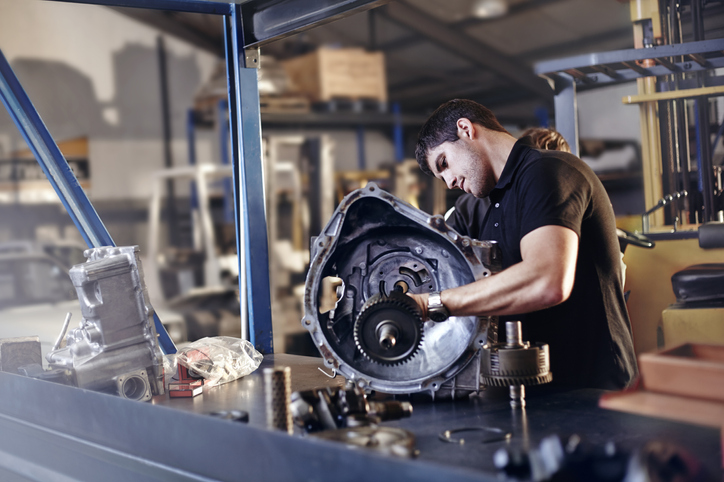In Auto Mechanic School? 4 Ways Good Numerical Skills Will Help You Succeed
Auto repair technicians are known to use several different skills like their impressive manual dexterity, good logic skills, and a profound understanding of the mechanical components within a vehicle. One skill set that isn’t often mentioned in relation to auto careers is mathematics, though this is necessary for the completion of many basic auto repair tasks. Keep reading to learn four ways you may use your numerical skills to thrive in your career after automotive school.
1. You’ll Need to Calculate Gear Ratios After Auto Mechanic School
Gears are used in nearly all machines that move. They are found in a vehicle’s engine and transmission. Typically, the gear ratio expresses the speed at which the engine is turning in relation to the speed of the transmission output. That being said, these figures can also represent the ratio between other geared components like differentials, rear ends, and tires. Gear ratio is an excellent tool that auto mechanics use to determine the performance and efficiency of a vehicle. It is calculated by dividing the output speed by the input speed.

2. Combustion Chamber Sizes Need to be Calculated
A combustion chamber is an area inside an engine where the combustion of fuel occurs. After you’ve completed auto mechanic school, calculate the volume of the combustion chamber by multiplying Pi by bore radius squared by the exposed cylinder height ((????) x (bore radius²) x (cylinder height)). The result of this calculation is used to determine the compression ratio by dividing the total combustion chamber volume by the total compressed volume. This determines the thermal efficiency of an engine. The higher the compression ratio, the better the engine performance.

3. Auto Repair Technicians Make Conversions Between Metric and Imperial Units
After auto mechanic training, you’ll need to work with an array of liquid engine components. Oftentimes, the tanks you’ll be working with are measured in litres, while the fluids are measured in gallons. It’s helpful to know how to complete conversions between metric and imperial units. It’s such a common task that many auto mechanics know how to do them quickly in their heads. This is one of the many competencies you’ll likely develop in our hands-on automotive training program and with the work experience you’ll gain after automotive school. Numerical skills that don’t come naturally simply require some diligent practice.
4. Good Math Skills Help Auto Mechanics Read Technical Manuals
After conducting a diagnostic inspection and determining the root of a customer’s automotive problem, auto repair technicians must plan a repair using their experience and technical manuals. In order to properly understand technical manuals, auto mechanics must understand the basic principles of mathematics, including addition, subtraction, multiplication, and division. They must also use their spatial sense to map out the contents of the manual in their mind’s eye. If you’re already a math whiz, you’ll enjoy a significant advantage during auto mechanic school and beyond. If you have not yet gained confidence in your math skills, rest assured that they’ll come with quality training and experience.
Ready to become a mechanic?
Contact CATI to learn how you can get started.

